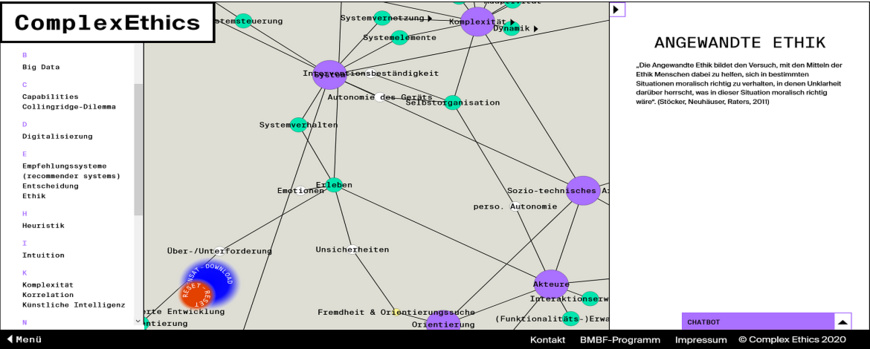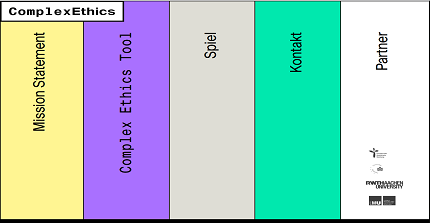ComplexEthics
Towards a description tool for complexity in socio-technical arrangements
Project duration: 2017-2020
Motivation
The technical world becomes more and more complex. New Internet protocols (IPv6) and Big Data mark a new quality of technical networking. However, increasing complexity is not only a technical problem, but also a social one. Socio-technical arrangements are becoming increasingly relevant in various social contexts (e.g. coping with everyday life, entertainment, learning, health) and confront users with orientation problems in their everyday lives.
Aims and approach
The aim of the project is to develop orientational knowledge to interprete, evaluate and describe the perceived complexity in socio-technical arrangements. For this purpose, analytical and theoretical approaches from ethics, anthropology, computer science and sociology are brought together.
In selected case studies, typical interaction scenarios between humans and technical artifacts are examined and the conflicts arising in them are addressed.
The concept of complexity plays a central role here. There exists many different definitions of complexity depending on the discipline. Most of them are unsuitable to describe the perceived complexity in socio-technical arrangements. So we have combined different approaches from the literature to find our own definition. Furthermore, we develop an analysis from the empirical studies, which makes the specific characteristics of complexity within these scenarios detectable. This should permit an early and comprehensive identification of ethically sensitive problems during the development of a new technology.
Innovations and perspectives
Existing approaches from "ELSA" research (above all the "MEESTAR model") will be used and further developed in order to design new interlaced systems in an ethically sensitive way. A project-accompanying coordination with the HCI expert community takes place in joint workshops and status meetings.
Project partners
Lutheran University of Applied Sciences
University of Potsdam
RWTH Aachen University
Ludwig-Maximilians-University Munich

Prof. Dr.-Ing. habil. Ulrike Lucke
Lehrstuhlinhaberin

Dr. rer. nat. Tobias Moebert
Wissenschaftlicher Mitarbeiter
Teamleitung Sozio-technischer Kontext



